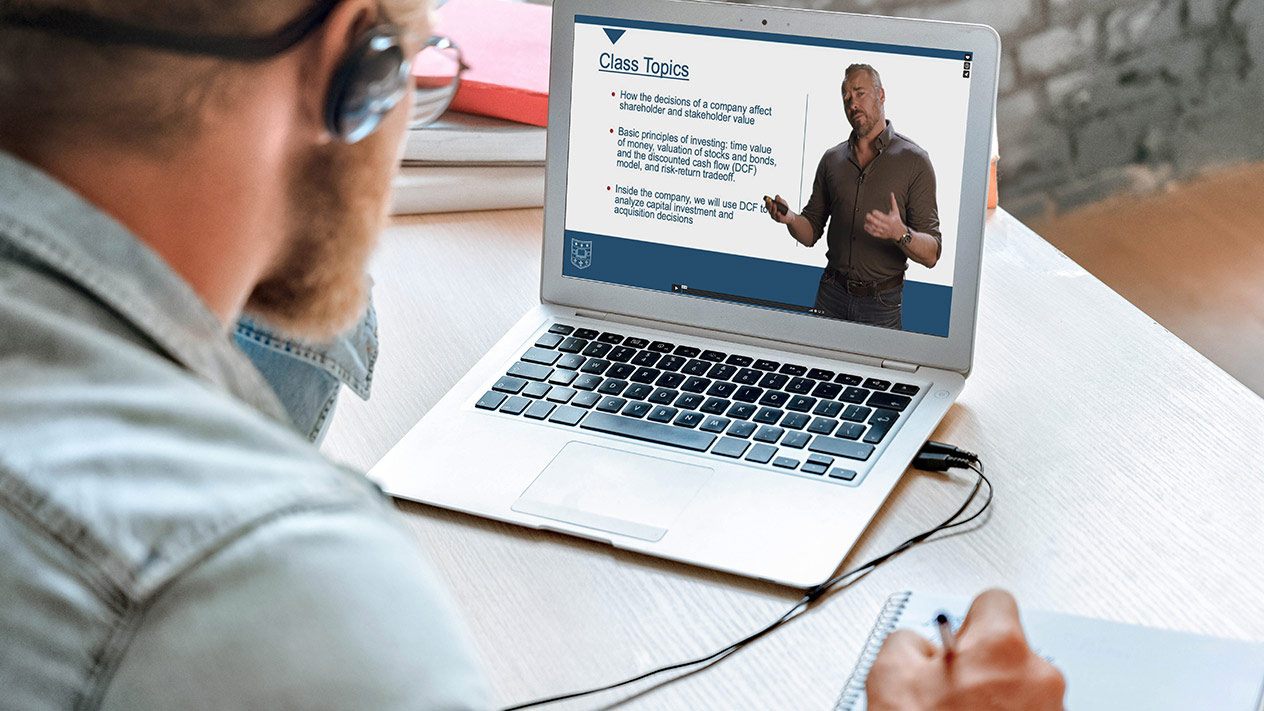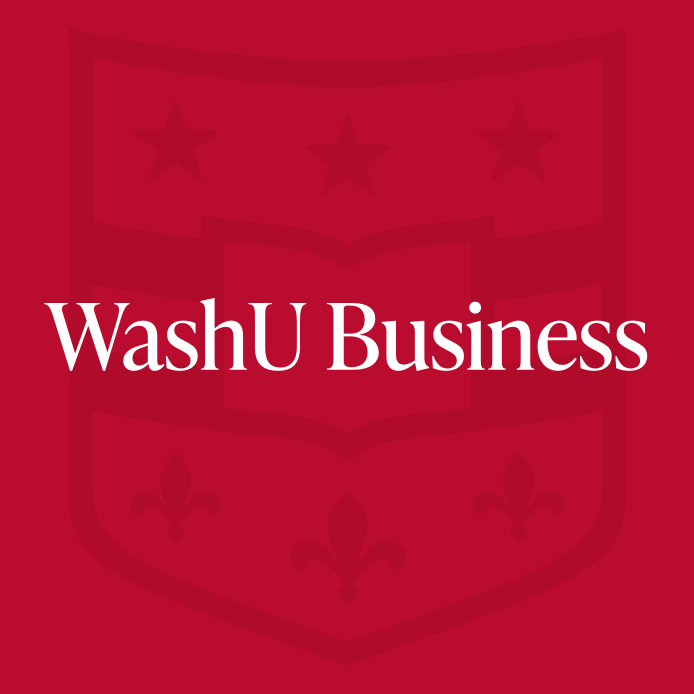Finding community and collaboration in an Flex MBA program
- July 1, 2024
- By WashU Olin Business School
- 4 minute read

When exploring potential MBA programs, people often assume that an online or hybrid (flexible) MBA will be the more isolated option.
Maybe they imagine sitting at home at their desktop computer, directing their own course of study and wearing their sweatpants. That's where the Olin Flex MBA (FMBA) comes into play.
The FMBA allows for online and in-person participation, catering specifically to the individual's needs. The FMBA can be just as communal and collaborative as an in-person degree. Olin has designed the MBA cohort experience with a focus on building a community of learners. That means the school gives a lot of thought to creating opportunities for collaboration, involving wider communities and ensuring the cross-pollination of ideas. But, for those looking for a more experiential track, Olin also offers the opportunity to meet in person for class.
What features does the Flex MBA have that encourage community?
Olin wants its FMBA cohort to have endless opportunities to interact outside their coursework because it understands the significant impact of community on learning. What elements does Olin implement to facilitate this?
- Culture and ethos: A major part of Olin's ethos is that learning begins in the classroom and is strengthened in the real world. That's why the school adopts both a global and communal approach, connecting students with opportunities to put their knowledge to the test in local, national and international settings.
- A focus on experiential learning: From this ethos comes a practical philosophy. The Center for Experiential Learning is the de facto hub at Olin Business School dedicated to helping students find real-world learning via opportunities like live consulting engagements and internships.
- A collaborative platform: Olin's FMBA doesn't just simulate a classroom environment; it provides new opportunities for student collaboration and partnerships with faculty. Students can join groups based on shared interests, such as healthcare innovation or people analytics. Students also have the opportunity to take classes with PMBA or full-time MBA students to strengthen and build their networks.
- Live classes and asynchronous work: Live classes with breakout sessions help MBA cohorts come together and discuss course content. Then, asynchronous projects involve smaller groups working together but apart, facilitating deeper connections and providing needed flexibility for remote-first students.
How Olin's collaborative focus impacts students
Olin's focus on MBA community development is geared toward improving the student experience in several ways.
A balance of offline and online life
FMBA students tend to enjoy a hybrid experience. Many of them realize they can spend a good portion of their social time on campus. Flex students can take as many courses in person as they choose. Olin hosts regular opportunities for MBA cohorts to meet with fellow students and professors. Online students in the St. Louis area and those further afield can come to campus for happy hours and to meet on-campus students.
Students also find that they do more in-person collaboration than they expect. Electives within the FMBA program include options to attend courses on campus. Student collaboration is a productive and rewarding part of the FMBA experience, and group projects often involve meeting synchronously to share ideas and negotiate strategies, then working asynchronously to develop content and piece together presentations.
An experience of the wider world
Beyond the program, the city of St. Louis offers a richly collaborative environment and acts as an extension of the FMBA classroom. Whether students live in St. Louis or not, the city has close connections to the Olin programs. Many local organizations are committed to building community in higher education.
The Olin Business School also encourages students to experience internships for credit. Olin sets students up with advisors who act as both academic and professional guides, helping them meet their personal career goals by finding opportunities with startups, multinational companies and entrepreneurs.
A dedicated and enthusiastic alumni community
The Olin community extends into St. Louis and beyond, but perhaps the purest example of it is the school's vast alumni network. The students in Olin's MBA cohorts join the program as separate individuals but soon form lifelong connections with faculty, advisors and project groups. Once they leave the program, they are forever connected to Olin's worldwide alumni network, which offers many different opportunities for students: jobs, mentoring, industry advice, personal guidance on work-life balance, etc.
The FMBA isn't an isolating experience. Olin's course designers and faculty members are dedicated to building community in higher education and promoting collaboration across cohorts and the wider community. Every year, Olin works to create a bigger, more welcoming and more diverse world for its students through its St. Louis business network and extended global community.
Media inquiries
For assistance with media inquiries and to find faculty experts, please contact Washington University Marketing & Communications.
Monday–Friday, 8:30 to 5 p.m.
Sara Savat
Senior News Director, Business and Social Sciences
